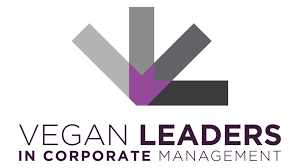Power in Numbers: Vegetarians @ Microsoft
Besides inspiring readers, this article aims to provide a blueprint for forming similar initiatives across other corporations.
What vegan initiatives are possible in the corporate world? A remarkable example is Vegetarians @ Microsoft, founded in 2004 by Mark Aggar, currently Microsoft’s Senior Director of Cloud Efficiency. MSVeg, as it’s known informally, is a group for Microsoft employees, contractors and vendors interested in veg-friendly food choices in the workplace. MSVeg has over 650 steady members (although Mark estimates that many thousands have been part of it through the years). Because of its popularity, MS Veg was eventually co-opted by HR, and it is now even mentioned during Microsoft’s new employee orientation!
How did you grow the group at the beginning, and what methods did you use to advertise it?
Mark: I started by inviting a few veg colleagues (which did not create much immediate traffic). Next, I posted flyers around the campus promoting the Seattle Vegfest and including a mention of MSVeg. That raised our membership to around 70. After that we organized our first MSVeg lunch. I reached out to our company news team and told them about the group. They interviewed me and a few other members, and published a story about us on the front page of our main intranet. About 200 more people joined that day, and the group grew to its present number fairly quickly from there.
How does the group operate? Do you organize any initiatives (e.g. meetups, committees)?
Mark: MSVeg operates as a discussion group on our internal “distribution list” platform. Anyone can s and initiate discussion around veg food issues at Microsoft. In the early days we did organize meetups, but we phased it out due to the planning effort and attendance challenges. Since we have achieved our initial goal (better veg food options available to our employees), we’re generally in the “maintain and improve” mode. Our main initiative is to hold quarterly meetings between the MSVeg representatives and our food service provider (Eurest, part of Compass Group). In those meetings we discuss issues, review wellness or other programs, suggest improvements and even sample Eurest’s proposed new offerings.
Has Microsoft been supportive of your group? Have you seen any changes resulting from your efforts?
Mark: Initially our efforts were solely grassroots. We gained some momentum after an incident involving a mislabeled soup which got the attention of our VP of HR who then escalated it Eurest, our food service provider. Eurest promptly reached out to us to fix the issue, and we have built an ongoing productive relationship (quarterly meetings mentioned earlier.)
Overall, I have seen a significant change since MSVeg became active. Aside from improved choices (the primary goal), there is a much greater awareness of veg issues among all levels of the dining staff. Food preparation is much better (separate gloves, cutting boards and serving utensils) and there are many specialty items such as Field Roast and tempeh. Plus, having veg choices in plain view is definitely moving more employees to eat a lot more veg food now because those choices are available. Some of them are even influencing their families to eat more veg food or have even switched entirely to a veg diet because of the exposure to options and to other vegetarians or vegans.
What advice would you give to others who may wish to set up a similar group within their companies? What are the key success factors?
Mark: I believe having a critical mass of employees in one location is key to having your organization respond with a program. Make sure your company knows you exist! It also helps to gain exposure after “incidents”, e.g. mislabeled food, that escalate the issue to decision-makers (such as VP of HR in our case). Also, if your company has lots of “social” groups, you should not need company permission or endorsement to start a veg group.
In the recent years, the vegan lifestyle became much more mainstream. Have you seen additional recent growth in membership?
Mark: The number of subscribers to MSVeg has remained remarkably steady over the years, but I’m seeing more vegan-centric discussion, from both vegetarians and vegans on the DL. Many vegetarians @ Microsoft seem to moving towards a veganism, a choice that is supported by distinct labeling of vegetarian and vegan options.
What is your future vision for MS Veg?
Mark: My initial goal was to have a critical mass of people who can influence the availability and quality of vegan and vegetarian offerings at Microsoft, and we have achieved that. Having great veg options is not only important for employee satisfaction, but also increasingly for hiring and even sales. I think members of MSVeg can continue to help remind Microsoft on the broader benefits of continuing our great vegetarian program. Beyond that I am keen to take our learnings and have them applied at other large companies, particularly those that use food services from the Compass Group such as Eurest.


